Today, you’re going to learn how to become a stronger empath using empathy exercises to be more empathetic and improve empathetic listening.
Empathy has the ability to challenge our highly individualistic, self-obsessed cultures and help us step imaginatively into the shoes of another person, understand their feelings and perspectives, and use that understanding to guide our actions.
Empathy has a power to bridge social divides and tackle crises such as political and ethnic violence, religious intolerance, poverty, human rights abuses, global warming, and many other issues. (*)
Many people share a common misconception that empathy is something you were born with.
Although it can be true in some cases, empathy is a skill that you can learn.
By training your mind to become more attuned to empathy, you shift your mindset until empathy becomes second nature to you.
What Is Empathy?
Are Empathy and Sympathy The Same?
Empathy is distinct from sympathy – such as pity or feeling sorry for someone – because sympathy doesn’t involve trying to understand the other person’s feeling or point of view.
When you notice a class mate is nervous before giving a presentation, you might try to imagine the anxiety he is experiencing, and give him the reassurance he needs.
When you see a homeless under a bridge, rather than just pitying him (sympathy), you may think about what it must feel like to sleep out on a cold winter night.
But empathy isn’t just about being aware of the pain and suffering around you. It’s also about seeing the other person’s point of view, when you want to choose a gift for a friend, you’d try to think about what kind of gift would delight her – not what you might personally wish for a gift. (*)
Defining Empathy: What empathy Looks Like
Emapthy is the capacity to understand and share others’ feelings.
Empathy help us step imaginatively into the shoes of another person, understand their feelings and perspectives, and use that understanding to guide our actions.
Are We Born With Empathy?
As human beings, we have an empathic side to our natures that is just as strong as our selfish inner side. We are born to empathize and are wired for social connection.
In fact, neuroscientists have identified a ten-section “empathy circuit” in our brains which, if damaged, our ability to understand feelings of other people can be diminished.
Child psychologists have proven that even a three-year-old is able to step outside himself and understand other people’s feelings.
Mirror Neurons
According to a study led by Giacomo Rizzolatti, our brains are equipped with “mirror neurons” that fire up both when we experience a feeling, such as pain, and also when we see somebody else going through the same experience. (source)
People who are especially empathic tend to have a lot of mirror cells.
But mirror neurons seem to be only one part of a much more complex “empathy circuit” comprising at least ten interconnected brain regions.
In other words, empathy is a capacity possessed by almost every human being – even if we don’t always put it to use.
Why Empathy Is Important?
Empathy is so important it’s hard to imagine a world where it doesn’t exist.
Without empathy, a mother would ignore the hunger cries of her newborn baby. Charities would fold because of lack of donations. Your friend would yawn with boredom as you tell them about your parent’s illness.
But we don’t live in a heartless world, where everyone is completely self-centered and indifferent about everyone else’s feelings and point of views – empathy is all around us.
Can We Learn To Be More Empathic?
Are our empathic capabilities limited by the kind of brain you happened to be born with?
The answer is No
There is overwhelming evidence that we can develop our empathic potential throughout our lives.
Like music ability, empathic ability is part nature and part nurture.
By practicing mindful attention toward other people’s feelings, we can expand our capacity for empathy.
The Empathy Deficit
In the lead-up to the 2008 U.S. presidential election, Barack Obama gave a moving speech that highlighted empathy deficit in our culture:
“There’s a lot of talk in this country about the federal deficit. But I think we should talk more about our empathy deficit— our ability to put ourselves in someone else’s shoes, to see the world through those who are different from us—the child who’s hungry, the laid-off steelworker, the immigrant cleaning your dorm room. . . . We live in a culture that discourages empathy, a culture that too often tells us that our principal goal in life is to be rich, thin, young, famous, safe and entertained” (*)
Psychologists have also noticed an “epidemic of narcissism” with one in ten Americans exhibiting narcissistic personality traits that reduce their interest in the lives of other people.
Even the rise of online social networks like Facebook has not served to reverse the empathic decline and might even have contributed to it. (*)
How To Become A Stronger Empath? Top 20 Actionable Empathy Exercises
So how can we expand our empathic potential?
Highly empathic people have something in common. They make an effort to maintain a set of attitude and everyday practices that enable them to understand how other people see the world.
The challenge we face is to awaken the empathic side of us by developing these habits of highly empathic people in ourselves as best as we can.
To become a strong empathy, try the following strategies:
#1. Connect With Yourself
Before connecting with other, you must first connect with yourself. Connecting with yourself is about becoming someone who is centered and less likely to be distracted easily by what’s happening around him.
Some of the best techniques that will help you connect with yourself are meditation and spending time alone.
Related: How To Overcome Solitude Phobia: 4 Ways To Get Comfortable Spending Time alone
Meditation helps you find balance and inner peace. It’s especially helpful to manage your day-to-day stress. It helps you control your mind and emotions.
Spending a few minutes every day in your own company, is another way to connect with yourself. This could be part of your meditation sessions, or it could be done as part of your self-care routine.
Related: Take Care of Yourself: (26 Simple Self-Care Practices for a Healthy Mind, Body & Soul)
#2. Put Yourself in Their Shoes
This is one of the most basic yet effective strategies to grow your empathy skills. Whenever you find yourself in a conversation with someone, imagine what things look like from their own perspective.
You might not realize it, but often, we become too absorbed in defending our own point of view that we forget that it’s not the only right way to see things.
What you might brush off as being too dramatic, or silly, might be a very serious matter to someone else. Being an empathy teaches you to see beyond your judgment and connect with the other person.
#3. Use Experiential Learning
Although experiential learning is the most demanding approach to empathizing – more than having a conversation or watching a film – it has the most benefits.
In an effort to re-create Christy Brown’s life, Daniel Day-Lewis spent months in a wheelchair for his role in the film My Left Foot. This approach is called immersion.
Another option is exploration, where you can become like an anthropologist searching out and closely observing cultures and lives that are different from your own
Another form experiential learning is cooperation, where you work with others in testing or traumatic circumstances that bring you into empathic union together.
Working together toward a common goal and sharing experiences with others can draw them into our circle of concern and create an empathic fusion.
#4. Eliminate Prejudices
Most of us have assumptions and prejudices about others.
We stereotype and make judgments based on first impressions while knowing very little about the reality of others’ lives.
For instance, we make the assumption that blue-collar workers are “uncultured,” or that Jews are tight with their money.
Labels and assumptions make it difficult for us to appreciate our humanity and uniqueness.
By becoming aware of these assumptions, you open yourself to become more empathic.
Relate to those you think are different by finding some common ground, something that makes you similar.
#5. Defy Authority When Empathic Action Calls For it
One of the main obstacles to empathy is the human tendency to obey authority.
People, like Adolf Eichmann—one of the chief architects of the Holocaust, defend themselves with the claim that “I was just following orders.” These people are neither perverted, nor sadistic, they are still terrifyingly normal.
Research show that it’s not the kind of person a man is that determines how he will act as much as the situation he finds himself in.
It’s important to keep in mind that the disposition to obey authority lies within most of us. Growing up, we’ve learned to “follow the rules,” and, “obey the law.” – It’s easy to abandon our empathic instincts in the name of authority.
But what will make us highly empathic people is the willingness and capacity to defy authority when empathic action calls for it.
#6. Close The Distance
Even though we’ve become more connected than ever before, thanks to a global network of Internet connections, cell phones, and satellite receivers, spatial distance remains a barrier to the spread of empathy.
When we can’t see the people’s faces, when we don’t know them or when their lives are far away and unfamiliar, our capacity to care about them is diminished.
Highly empathic people always seek to close this distance as much as possible in enable themselves to touch those who are far away from them across space, time and social background, more easily with their imagination.
#7. Get Out of Denial
Have you looked before at picture of a starving child and had little empathic response?
“Empathy fatigue”, a state of psychological exhaustion induced by the barrage of depressing news stories we get everyday, explains such phenomenon.
The empathy fatigue has created a “culture of denial” that allows many of us to know about the suffering of other people yet also block this information out and do nothing about it.
One of the reasons why we live in a state of denial when it comes to other people’s suffering is the shame and guilt we feel for living, by contrast, such privileged lifestyles. We do not want to admit that somehow we might be responsible.
We come up with convenient reasons why we don’t need to take action to relieve the suffering of others, such as “our individual actions would not make any difference to such a huge problem,” or, “the money we donate could be misused by aid agencies and corrupt local officials.”
Highly empathic people are aware that such reasoning is a form of denial designed to shield them from feeling shame and guilt, and so they make a conscious effort to not let these excuses eat away at the core of their empathic selves.
Related: How To Step Out Of Denial? Top 10 Steps To Overcome Denial When The Truth Is Heartbreaking
#8. Become Curious
The older we get, the more disconnected we become and the more we tend to keep to ourselves, especially when we’re not naturally extroverts. However, becoming an empath requires nurturing your curiosity about people.
Find opportunities to engage with other people and strike conversations with them, especially those who are different from you and you normally wouldn’t connect with. This will help you get rid of more barriers.
#9. Humanize The “Other”
Empathy expands when we acknowledge the humanity of other people – their individuality and uniqueness – and treat them as being of equal worth to ourselves, despite prejudices and stereotypes or authorities commands to denigrate them.
Treating other people as being equal to ourselves is done through knowing them. By looking someone in the eye, giving them a name and recognizing their individuality, you become more able to empathize with them.
We also humanize people in our imaginations by becoming aware of all those individuals who had touched our daily lives, even indirectly. The religious thinker Karen Armstrong suggests we do this by doing the following:
“When you get up in the morning, remember those who planted, picked and spun the cotton of your sheets and who collected, treated and exported the beans you grind for your morning coffee. You enjoy their product, so you have a responsibility for them, especially if they were working in poor conditions. . . . As you set off to work, reflect on the thousands of workers and engineers who maintain the roads, cars, railways, planes, trains and underground transport on which you rely. Continue this exercise throughout the day.”
This practice helps you appreciate how dependent you are on other people you have never met or known and lead you to deepen your human concern and take action on their behalf.
#10. Use Artworks to Develop Your Empathy
Experiencing Empathy From The Comfort of Your Living Room
“It was through books that I first realized there were other worlds beyond my own; first imagined what it might be like to be another person.” – Julian Barnes
There is a growing body of evidence confirming that literature, photography, movies, and other forms of art, have the ability to take us on imaginative journeys into lives that are profoundly different from our own, expand our empathic horizons, and inspire empathic acts on the behalf of others.
Highly empathic people recognize that while books and artworks are a secondhand experience, they deserve to be taken seriously. They aren’t simply seeking entertainment, they also are empathically engaged, even from the comfort of their living room.
In fact, these forms of artwork has been inspiring people to take action on various causes such as child labor, global warming, mental health, etc.
This is not to say that movies or books that fail to set our empathy alive should be dismissed. Rather, the point here is that cinema and literature offer opportunities for stepping into the shoes of people whose lives we may never have a chance to understand through conversation or direct experience.
The idea is to make a conscious effort to look for opportunities that stimulate us to think and act with greater empathic sensitivity, like reading a book or watching a movie about aging or mental illness or life in war, etc.
#11. Cultivate Empathy Online
Social networks and other forms of online culture offer the prospect of instant connection with millions of people around the planet. The Internet now has a global reach of 4.9 billion users.
Unlike the one-way communication of a novel or a movie, social media allows for two-way interactions, while still sitting in our homes.
Social scientist Jeremy Rifkin argues that “the potential to experience empathic sensibility and to take it to a global level is now within reach.”
However, the potential of the Internet has been exaggerated. If anything, Internet and social media might pose one of the greatest threats to a global empathy revolution.
In fact, it is believed that a networks like Facebook, instead of promoting meaningful human relationships, has fueled superficial interaction.
Highly empathic people are aware that empathy thrives best in relationships that have depth, and make a conscious effort to use Internet and social media to immerse themselves in other people’s unique view of the world rather than a prefabricated online profile.
How to Improve Empathic Listening?
Time has become a scarce resource. Everyone is rushing after something. It has become increasingly difficult to exercise patience and listen to others.
As a result, our interactions became more and more cold and void from real connection and empathy.
This is why it’s important to practice empathic listening; be willing to listen before speaking, understanding instead of criticizing and comforting instead of judging.
Empathic listening will significantly improve the quality of your interaction and strengthen your relationship, whether it was with your spouse, family member, friend, coworker, or even the barista at your local coffee shop.
How to Practice Empathic Listening?
The following are top strategies to develop empathic listening:
#12. Remind Yourself That You Don’t Have to Agree With Them
When you remind yourself that this is not about you, you place your conversation partner above your needs.
You might not be their therapist, but if you want to encourage them to share a personal issue for which you’re ready to provide support, put aside your personal opinion and make sure you’re available emotionally.
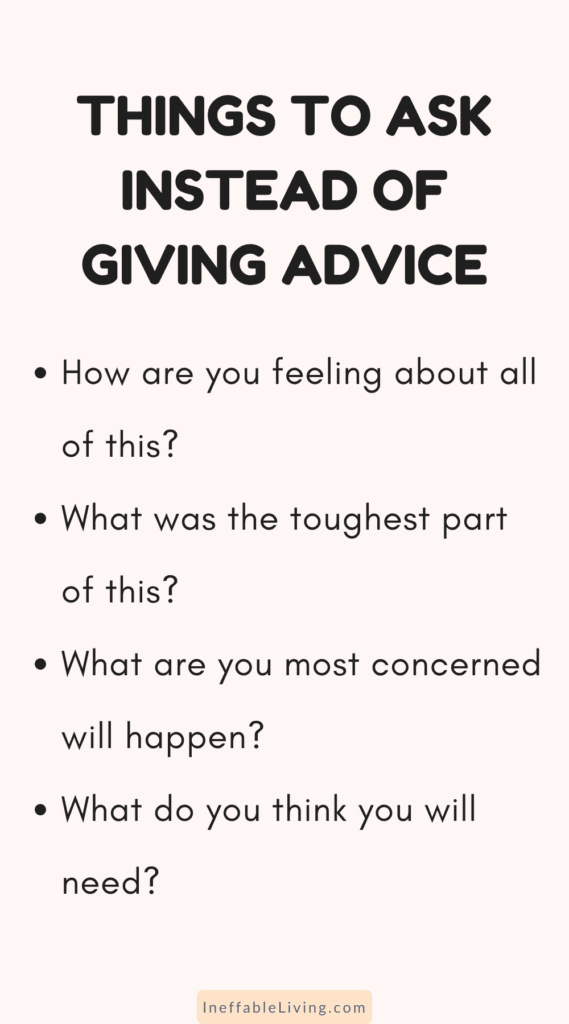
#13. Put Away Your Phone
It became almost natural for us to check our phone or answer a text message while the other person is pouring their heart out. We got in the habit of checking our social media every 5 minutes that sometimes we forget about the person right in front of us.
So if you want to offer empathy and create a deep connection, put your phone away and ask the other person to do the same.
#14. Be an Active Listener
Active listening is about being present and exclusively focused o the person in front of you. An active listener is constantly seeking a better understanding of the topic in discussion and how the other person is feelings.
But that doesn’t mean you have to nod and listen in silence. Both partners exchange insights and ideas but most importantly relate with one another emotionally.
One technique that can help you understand your conversation partner and let him know that you’re listening and understanding him, is ‘paraphrasing’.
All you need to do is to listen to what the person is saying and rephrase his message to make sure you understood him.
Along with paraphrasing, studies suggest that clarifying questioning and remembering details are essential elements of active listening.
Related: How To Communicate More Effectively
#15. Refrain from Judgment
When someone shares something personal, it’s important to remind yourself to refrain from evaluations, criticism, or negative feedback.
If the other people’s problem seems ridiculous, or even infuriating, remind yourself that this is not about you and that your goal here is to understand and provide emotional support.
Any form of judgment will only make it difficult for you listen, understand, and empathize.
#16. Watch Your Body Language
Body language has a significant role in communicating understanding and empathy.
Adequate posture and gestures can help you bring people closer and get rid of barriers.
Adopt a relaxed posture with open arms and constant eye contact to make the other person feel welcome and safe. A friendly pat on the shoulder or a warm hand can also help the person feel safe and relax.
#17. Refrain From Giving Unsolicited Advice
When people feel the need to open up and share something personal, the last thing they need is to be told what they should do.
Remind yourself that empathic listening is about understanding and connecting.
Related: How To Validate Someone’s Feelings Without Agreeing? (+Examples of Validating Statements)
#18. Don’t ‘Fill Up’ the Silence
Moments of silence make most of us feel awkward, but silence can sometimes communicate more than words. It can be an important part in a conversation.
You can use silence to allow your conversation partner to take charge of the conversation or give him time to consider you input and collect his thoughts.
Silence helps you communicate with your body language to express empathy.
#19. Reveal Yourself, Too
Sharing part of yourself and seeking connection with the other person is as important as active listening in deepening the emotional bond and develop empathic relationships.
Empathy is built on mutual exchange: the more open we are with others, the more likely they are to open with us.
Highly empathic people think of conversation as a two-way dialogue, that’s meant to create a mutual understanding.
They understand that deepening their relationships involve embracing vulnerability and talking more openly about the issues that really matter to them, from sexual insecurity to feelings of loneliness and pain.
In a culture where being vulnerable is seen as weakness, emotions researcher Brené Brown argues that vulnerability can actually good for us:
“We’re brought up believing and being taught and seeing it modeled in our parents, that vulnerability is weakness, and that going out into the world without armor is basically asking for the hurt that you get. But to me, vulnerability is not weakness—it’s the greatest measure of our courage.”
Related: Best 20 Healing Shame Exercises To Break Free From Toxic Shame
#20. Learn the Language of Empathy
Every skill is perfected through practice.
Empathy isn’t just about understanding emotions, it’s also about being and acting. By changing your attitude and displaying more love and care, empathy will become a part of your personality and you’ll be surprised at what difference it can make in your relationships and life.
Empathy isn’t just a powerful way to escape the boundary of our egos, but also a powerful force to inspire social change.
By stepping outside ourselves and discovering the world around us we allow empathy to fulfill its revolutionary potential as a force for social change.
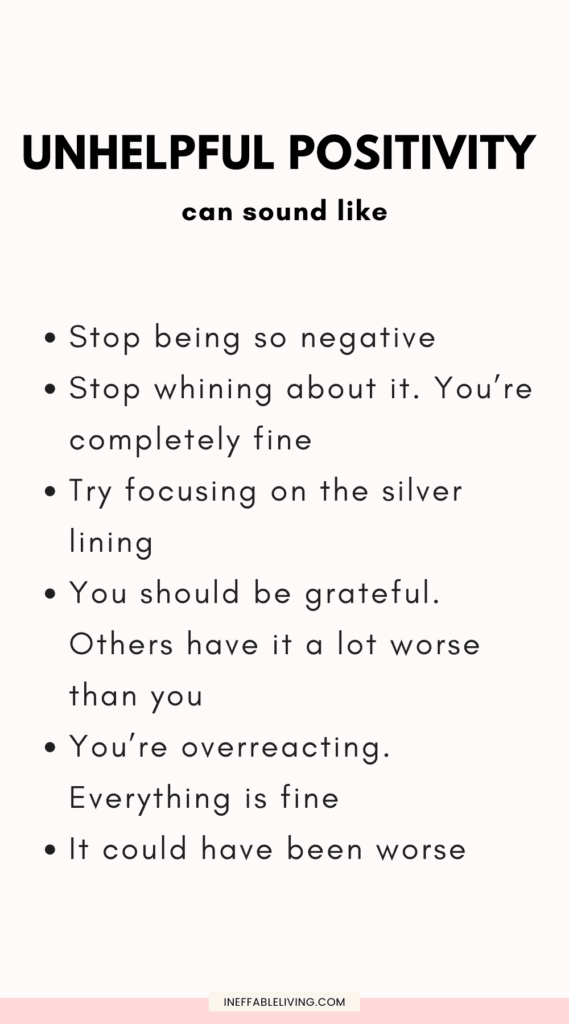
Are You There Yet? The Six Habits of Highly Empathic People
#1. They Cultivate Curiosity About Other People
To cultivate curiosity about other people means to embrace a more sophisticated understanding of human nature.
It’s about recognizing that:
1) the capacity to empathize is part of our genetic making with deep roots in our evolutionary past, and
2) that it’s never too late to expand empathy in our lives.
Cultivating these ideas is the perfect priming for our minds to develop the other five habits of highly empathic people.
#2. They Challenge Their Limiting Assumptions
Empathy helps create human relationships in a way that gives our lives meaning and expands our perspectives on the world and our own lives.
Despite how good empathy can be for us, most people aren’t striving to do more of it.
The reason is that we face social barriers (prejudice, authority, distance, and denial) that limit the full expression of our empathy.
Highly empathic people are consciously striving to jump these barriers and make the imaginative leap into other people’s minds.
#3. They Take Time To Experience The Lives Of Others
Our education system is directed toward learning via the secondhand modes of words and images. Yet for over five hundred years experiential learning has been recognized to be the most effective way of learning.
Jean-Jacques Rousseau argued that “true education consists less in precept than in practice. We begin to instruct ourselves when we begin to live.”
#4. They Practice The Art of Conversation
We’re not only facing a crisis of conversation, today, but we’re also facing a crisis of quality of conversation in our relationships.
In fact, lack of communication is one of the major causes of divorce in Western countries. At the same time, there is a rise of superficial talk, mainly due to the incessant chatter created by new technologies.
This has a great impact on empathy because it’s the conversation and its quality that allow us to understand others feelings and points of view and empathize with them.
This is good news for tackling our empathy deficits. The challenge we face is to rethink the way we talk to other people so we can access greater insights into their feelings and thoughts and deepen our emotional bonds with them.
Highly empathic people bring six key qualities to their conversations: curiosity about others, active listening, revealing ourselves, concern for the other.
These qualities shouldn’t be thought of as tools to improve your communication, because such strategies are bound to make the conversation mechanical and get in the way of empathy.
Instead these qualities should be thought of as a craft that takes practice for you to be good at them. Rather than being constructed from a set of rules, these qualities allow you to introduce your own character and individuality.
Related: How To Communicate More Effectively
#5. They Show Concern for the Other
Many people view communication as a mean to get what they want or meet their own emotional needs, or even control and manipulate other people.
But empathy isn’t self-centered or utilitarian. Empathy is striving to focus on the other person’s interest and well being.
Highly empathic people make a conscious effort to bring an attitude of concern for the other person – their interests and well-being – into their communication.
#6. They Inspire Mass Movements
Empathy Revolution
Empathy revolution happens when a group of people make an imaginative leap into the lives of others. Empathy becomes a power to alter the contours of history.
Many people are using the power of social media to create mass empathy and political change, such as the Arab Spring and the Occupy movement between 2009 and 2012.
Protesters used Social media to spread photos and videos that reached the world and inspired mass movements and social change.
Political analyst Paul Mason says “in the crush of every crowd we see arms holding cellphones in the air, like small flocks of ostriches, snapping scenes of repression or revolt, offering instant and indelible image-capture to a global audience.”
Bio-Empathy
The ecological crisis we face today isn’t just about climate change. It also includes species extinction, environmental pollution, natural resource depletion, etc.
The pressures are being exacerbated by a growing global population that may reach nine billion people by 2050, and if everyone on the planet consumed natural resources at the rate of the average American, we would require nearly 4 planet Earths to sustain us.
One of the main reasons why we’re not doing more to prevent the ecological crisis, is the fact that not many people care enough about nature.
This is why a growing chorus of voices is striving to expand our empathy to include nature, with the aim of creating what Jeremy Rifkin calls a “global empathic consciousness.”
Conclusion
An empath isn’t just someone who was born with the natural gift of empathy. Everyone can learn how to be an empath and connect with other people.
This is why to learn the language of empathy and understand the life of others you need to step into the world of experience – through immersions, exploration, and cooperation.
“Empathy is a constant awareness of the fact that your concerns are not everyone’s concerns and that your needs are not everyone’s needs, and that some compromise has to be achieved moment by moment. I don’t think empathy is charity, I don’t think empathy is self-sacrifice, I don’t think empathy is prescriptive. I think empathy is an ever-evolving way of living as fully as possible, because it’s pushing your envelope and pushing you into new experiences that you might not expect or appreciate until you’re given the opportunity.”
– Patricia Moore
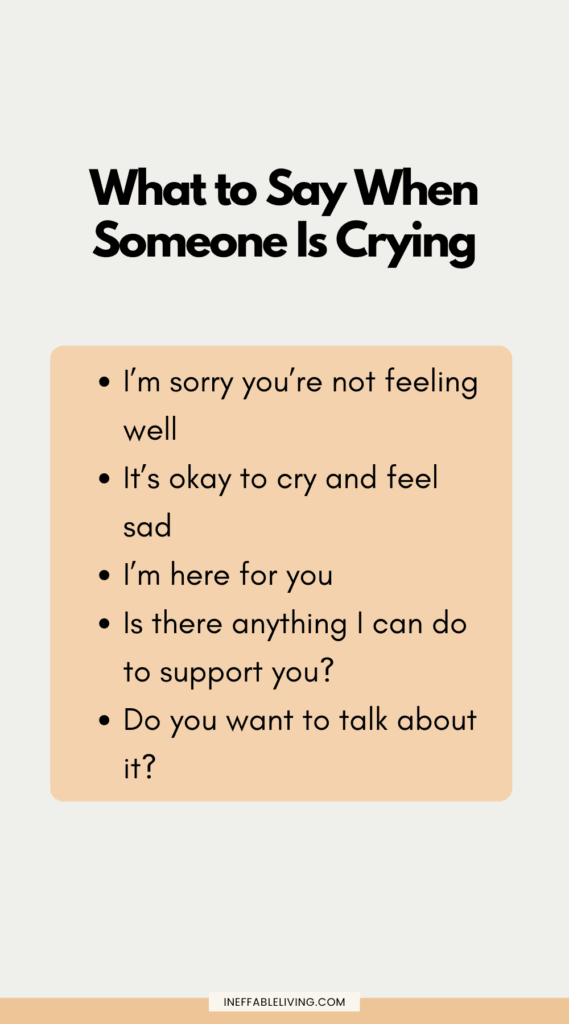
Resources
- Portions of this article were adapted from the book Attachment Theory Workbook ©, April 19, 2020, by Emily Attached. All rights reserved.
- What Is Empathy? Definition, Types, and How to Be More Empathetic (verywellmind.com)
- How to Be More Empathetic – A Year of Living Better Guides – The New York Times (nytimes.com)
- Empathy | Psychology Today
- The Science of Empathy – PMC (nih.gov)
- ‘I Feel Your Pain’: The Neuroscience of Empathy – Association for Psychological Science – APS
- Cultivating empathy (apa.org)
- The Science of Empathy – Helen Riess, 2017 (sagepub.com)
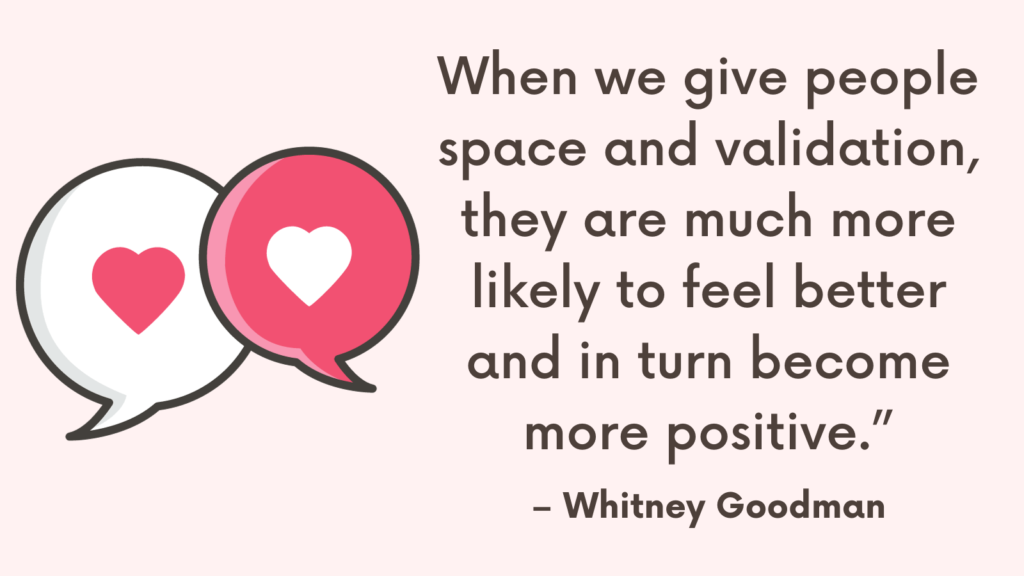

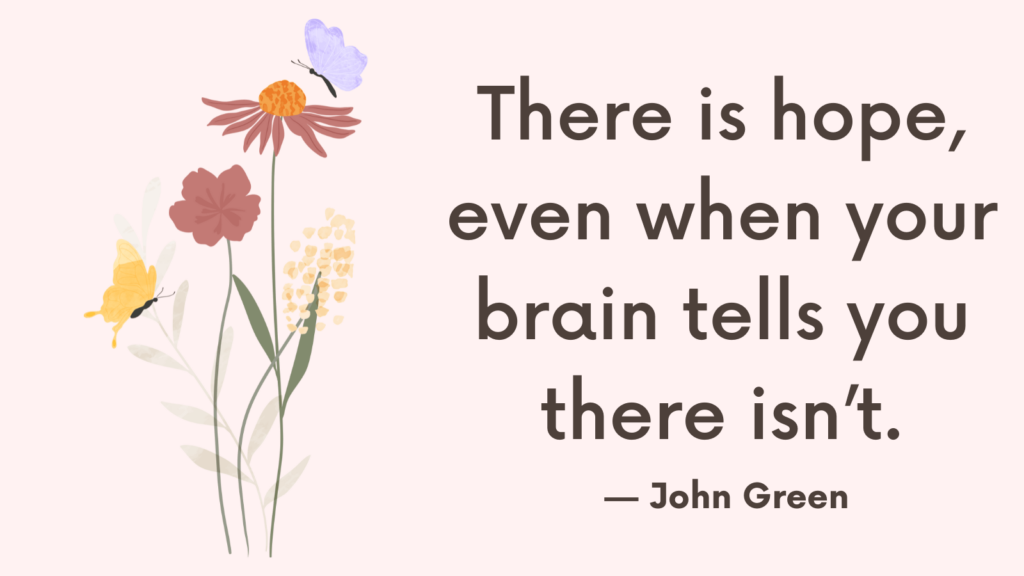
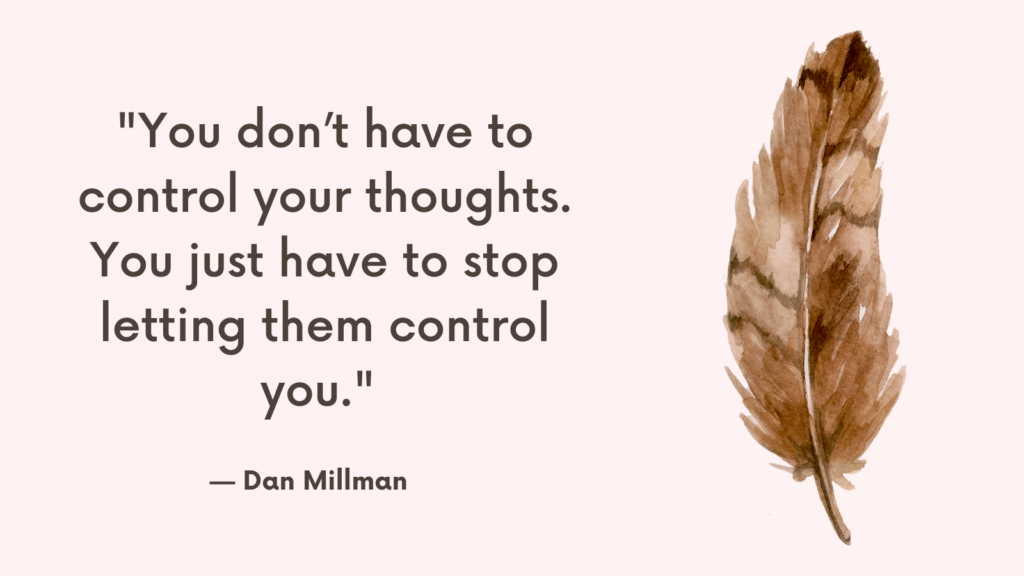
Comments are closed.